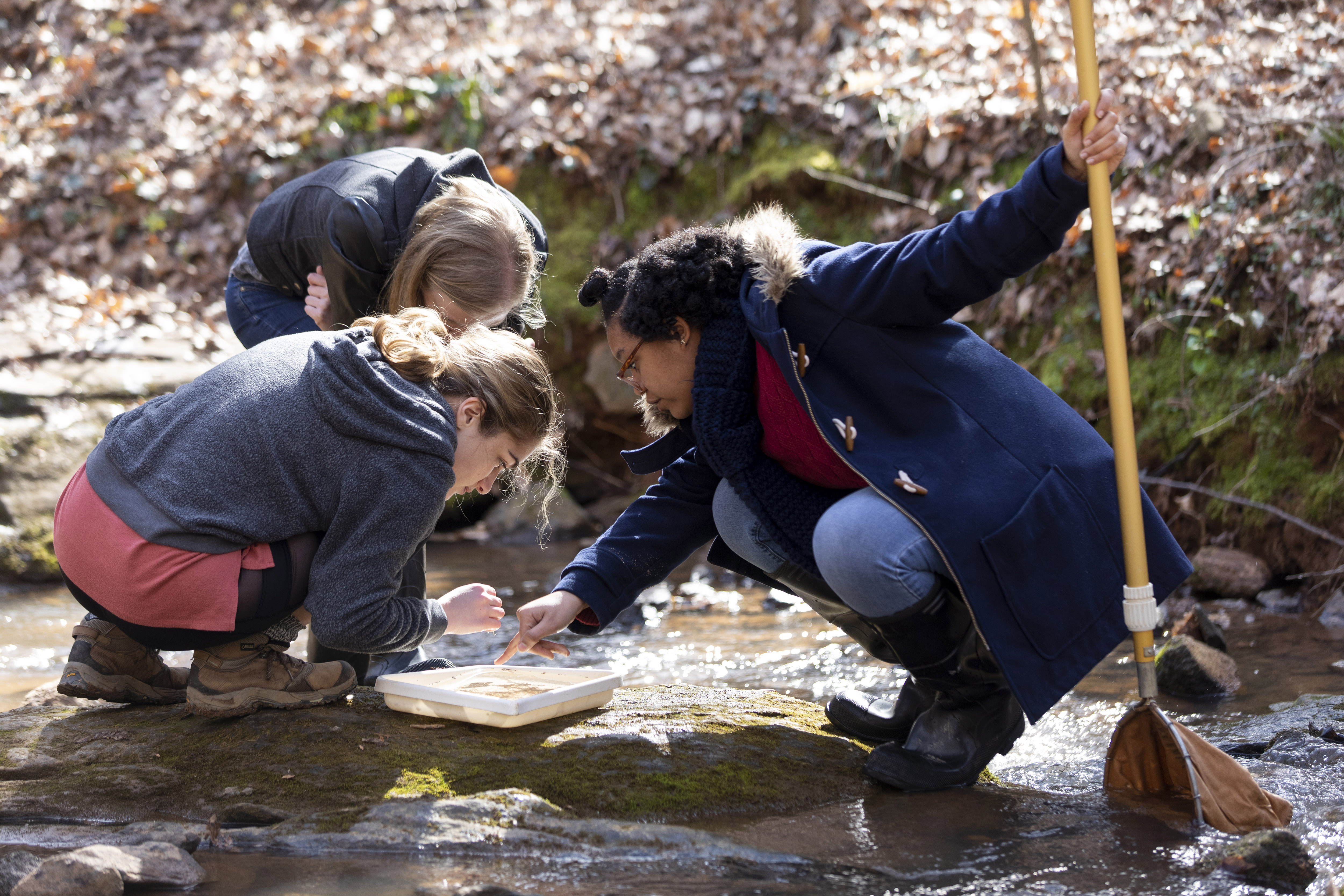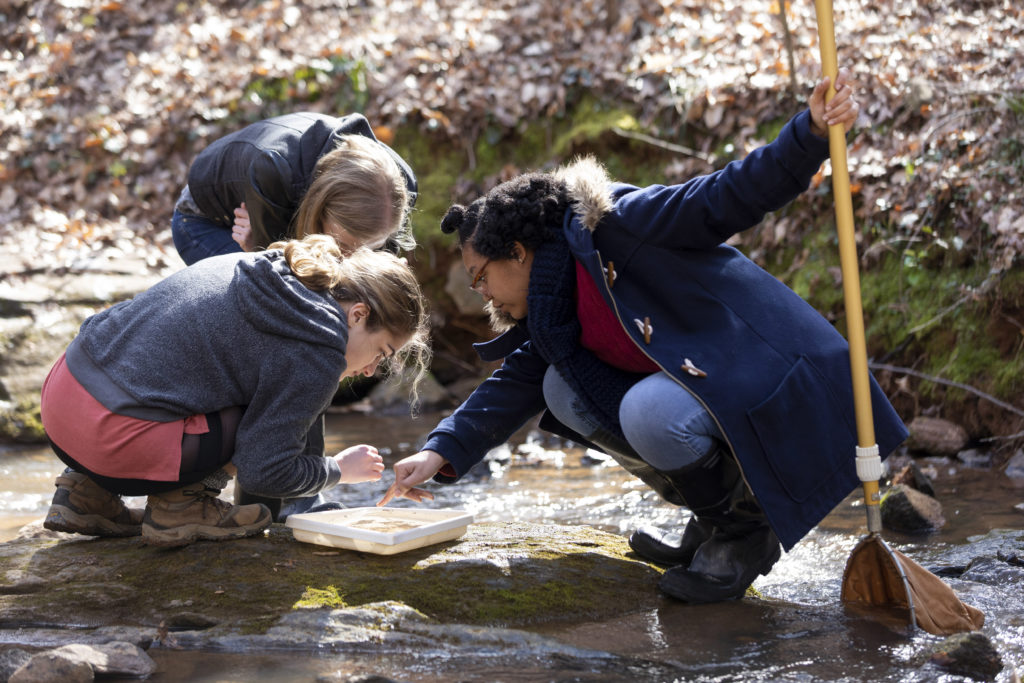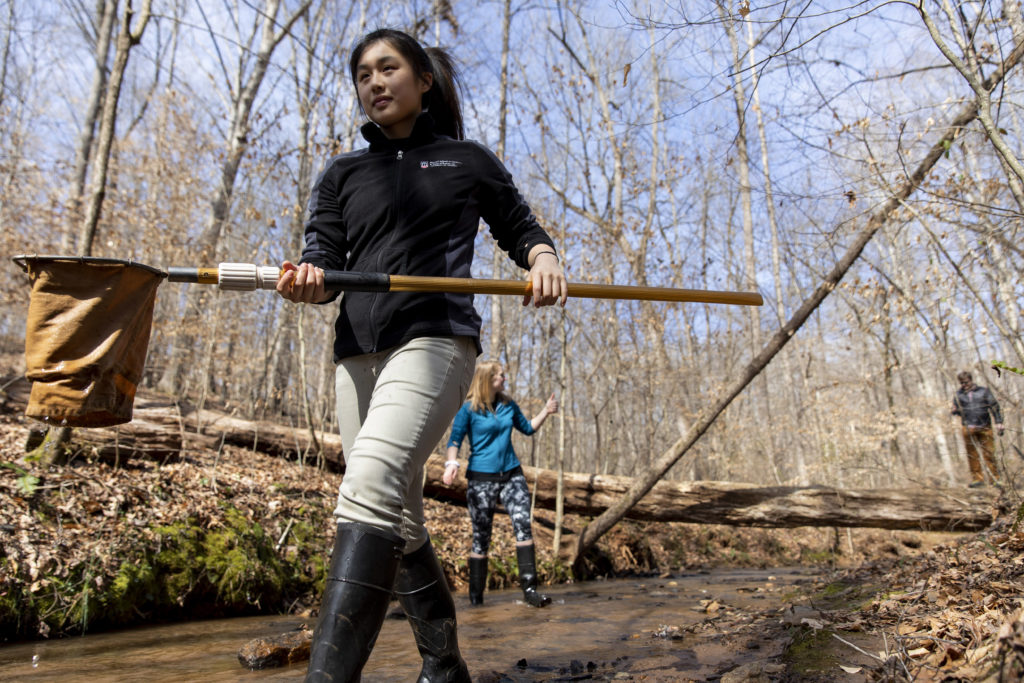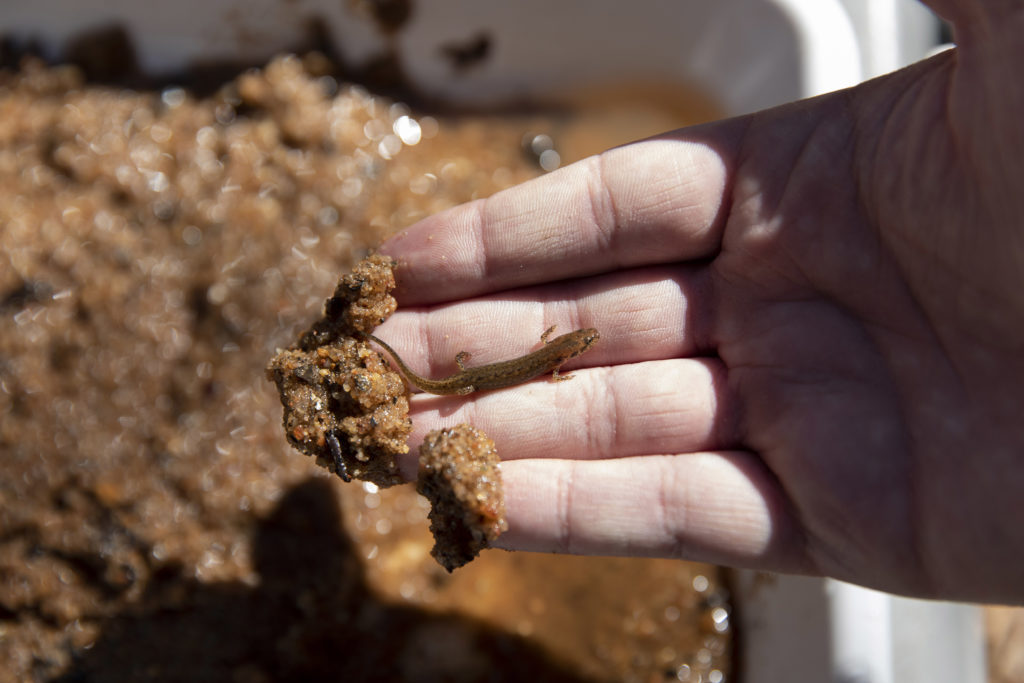(Gallery photos by Andrew Davis Tucker/UGA)
What better way to learn about ecology than conducting a study in a living lab at the University of Georgia’s State Botanical Garden of Georgia?
For a semester-long stream project, UGA students in Ecology 3500 designed their own original studies involving observing and measuring ecological processes in the Orange Trail stream at the botanical garden, a UGA Public Service and Outreach unit. They conducted field research this week.
“Specifically the students study macroinvertebrate communities in the stream and tend to look at different abiotic factors that influence their abundance and/or diversity,” said Katie Brownson, doctoral candidate in Integrative Conservation and Ecology, the lead teaching assistant for the course. “But there is a lot of variability in what they study, as the students design their own projects.”
Ecology 3500, or simply titled “Ecology,” in the Odum School of Ecology introduces students to core principles, classic experiments, current events and ongoing research in ecology. Students learn to apply principles of ecology to evaluate the structure and function of the natural world, including how ecological processes shed light on human-environment interactions.
Course lab activities use inquiry-based learning, which provides a more realistic experience of ecological research than traditional lab format. Working in teams, students design an original ecological study and collect, analyze, and present their data.









